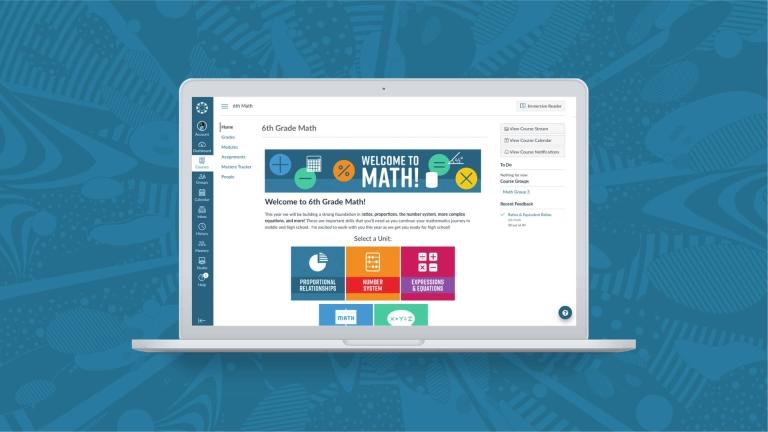
Every university, college, or school that uses Canvas to enhance teaching and learning also has access to broad and deep data on how Canvas is being used at their institution. Our customers' use of this data has grown and developed over time, and it has been satisfying to see institutions using this data to understand course design, explore online teaching methods, and to serve students in need. As many institutions have adapted to fully online or remote teaching during the COVID-19 pandemic, we've seen an intensification of interest in Canvas data. Some of that interest has stemmed from institutions' need to ensure the academic integrity of student assessments, especially when those assessments are online but also open or un-proctored.
This post explains why we at Instructure discourage the use of Canvas data to police students or as forensics to identify cheating.
To be clear, Instructure does not dictate what Canvas customers can and can't do with data from Canvas. We strongly believe in educational institutions' role and responsibility to use data in context of their unique challenges and situations to improve education, support students, and sustain their institution.
We also believe that Instructure should lead when possible and articulate a vision for ed tech that inspires our users and challenges the status quo.
Our vision for Canvas is to help you transform teaching and learning into an awesome experience for more people, anywhere. We do this through technology that tears down barriers, builds up learners, and inspires innovators. For example, Canvas aims to tear down barriers between users and the tools, between technologists and the technology, and between students and their classmates / instructors. We help build up learners by providing students a simple and clear view into their learning path, by getting out of the way of learning itself, and by encouraging feedback and highly human interactions that engage and improve learning. Finally, we inspire innovators by opening up our platform capabilities (including data) to technologists, and fostering a sharing and inclusive community of educational innovators.
We sometimes refer to this vision as The Canvas Way.
This Canvas Way guides the design and development of the many features and capabilities of Canvas, from its usability to SpeedGrader to it's unmatched reliability and even to the data we expose. If Canvas data does not tear down barriers, build up learners, and inspire innovators, we're missing the mark.
So while use of Canvas data for purposes such as improving course design, identifying at-risk students, or building new innovative tools is perfectly aligned with our vision, using Canvas data to police student activity or identify cheating behavior is not our priority -- even if that is a possibility.
Instead, we believe that it's more important that Canvas enables trust between students, instructors, and administrators, supports fairness for all learners, and protects users' privacy. (It's not always easy to balance issues such as student privacy with goals of increasing student engagement and success; nonetheless, we believe these waters can be navigated ethically.)
We're not blind to the fact that some students will cheat on assessments. Cheating is not a new phenomenon, though arguably cheating is made easier by ubiquitous access to the internet. This is why monitoring high-stakes student test-taking, even online, can reduce incidents of cheating. Finally, we do acknowledge that, in some cases, data from Canvas (e.g. from a Quizzes session) can be used to infer cheating behavior. But because Canvas's primary purpose is to enable learning, not monitor and track students or identifying cheating, data derived from Canvas will be a limited, decontextualized fragment of total student behavior. In other words, use such data at your own risk.
This is not the end of the road, however. One of the things that makes Canvas unique is it's extensibility. Part of why we've invested so heavily in open standards and APIs is to empower institutions and instructors to customize their Canvas environment to address their sometimes unique needs. This has helped us cultivate a massive partner ecosystem of best-of-breed tools,as well as to empower you to build your own homegrown solutions on top of Canvas.
So when, it comes to securing or invigilating student assessments through Canvas, we make two recommendations:
- Explore alternative assessments through Canvas that are less susceptible to cheating (and, bonus, potentially more expressive of a greater breadth / depth of learning), such as individualized projects, iterative work over time, or real-time performances.
- Employ Partner technologies who are focused on facilitating or invigilating online assessment, appropriate to your unique situation.
If you do find yourself investigating possible cheating and turn to Canvas data as a source of evidence, please use it with caution. Understand what the data does and does not mean. Recognize that data from Canvas can only ever tell part of a student's story. And, finally, consider that prevention may be the best cure.
Despite the rapid rush to remote instruction during the past 18 months, online teaching and learning is still new to many students and instructors. This means many of us are grappling with challenges in adapting to online education that feel novel and can be bewildering. Yet we're continuously inspired by how education is using Canvas for online education in ways that increase access, engage participants, and ultimately improve the art, the science, and the impact of education around the world.
We hope that you will continue to invite us into conversations around the challenges of online education, and participate in conversations that we host on data ethics, user privacy, and student rights. We promise that, even when we can't bring the right answer out of the gate, we'll always bring our informed perspective -- and a commitment to collaborating with the Canvas Community to achieve an equitable and student-centered future.
Related Content
 The Power of Formative Assessment 7 Ways It Can Benefit Learners.png
The Power of Formative Assessment 7 Ways It Can Benefit Learners.pngBlogs
 formative_assessment_1.png
formative_assessment_1.pngBlogs
 Teaching-With-Tech-10-Benefits.jpg
Teaching-With-Tech-10-Benefits.jpgBlogs